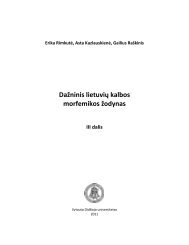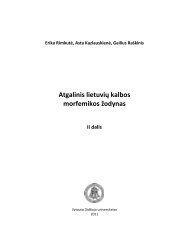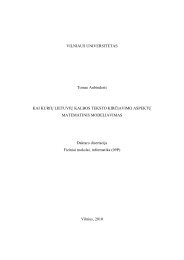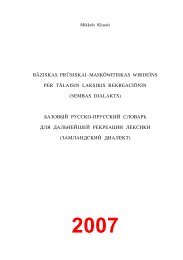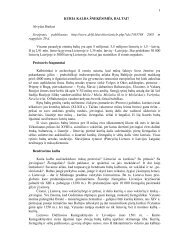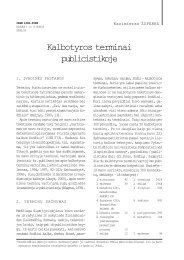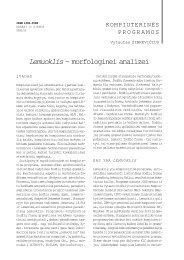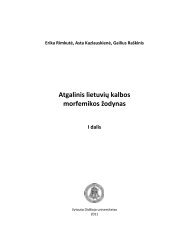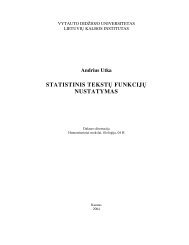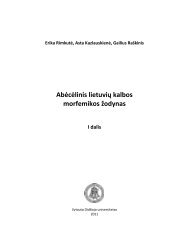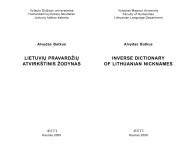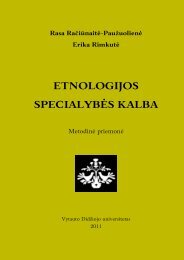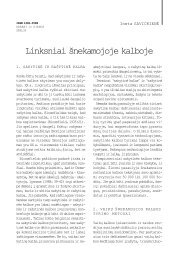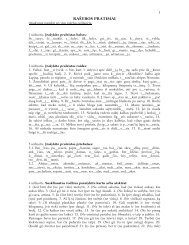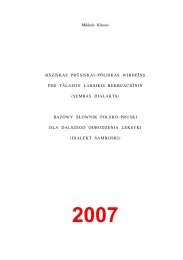HISTORICAL GRAMMAR OF OLD PRUSSIAN
HISTORICAL GRAMMAR OF OLD PRUSSIAN
HISTORICAL GRAMMAR OF OLD PRUSSIAN
Create successful ePaper yourself
Turn your PDF publications into a flip-book with our unique Google optimized e-Paper software.
38<br />
V. Maþiulis<br />
159), melato (E) ‘(black) woodpecker’ = *melat¯É (PEÞ III 112 f.), kamato<br />
(E) ‘dill (Fenchel)’ = *kamat¯É (PEÞ II 100 ff.).<br />
* 76. 3 (E) substantives with Pr. suf. *-ait-/*-eit- seem to have a<br />
collective meaning (Ambrazas DDR II 59) and, therefore, are not diminutives:<br />
crichaytos ‘bitter plums’ = *krîkait¯És (PEÞ II 272 f.), sliwaytos<br />
‘plums’ = *slîvait¯És (PEÞ IV 131), wisnaytos (E) ‘cherries’ = *vîsnait¯És<br />
(PEÞ IV 255).<br />
* 77. Pr. suf. *-utis /*-utîs seem to have expressed a concrete, not a<br />
diminutive (Ambrazas DDR II 103) meaning, what may be seen in the<br />
following 2 (E) substantives derived with this suffix: locutis ‘bream’ =<br />
*lukutîs < *‘light-coloured fish’ (PEÞ III 78 f.), cf. Lith. lauk-ùtis ‘horse<br />
with a white spot on the forehead’ (Skardþius ÞD 363); nagutis ‘fingernail’<br />
= *nagutis (: OSl. nogútü ‘idem’), cf. Lith. krauj-ùtis ‘milfoil’<br />
(Skardþius l.c.).<br />
* 78. Pr. suf. *-`t- occurs in nouns: deiwuts (Cat.) ‘blissful’ <<br />
*deiw`tas ‘devout’ (= Lith. dievƒotas, PEÞ I 193), nagotis (E) ‘(iron) cauldron<br />
with legs’ = *nag¯Étis (PEÞ III 168), sarote (E) ‘carp’ = *zar¯Étç



